Helen Hunt, 60, Stuns During Her Latest Appearance, and Her Lips Become the Center of Attention

The conditions on this mysterious island might teach us how we can live on Mars one day! Devon Island is, to this day, the largest uninhabited island on our planet. It’s located in the Canadian Arctic Archipelago. And it’s easy to see why people find it impossible to make a home here: the soil stays frozen throughout the seasons.
The eastern part of the island is covered by a thick ice cap all year round. Summers here last for less than 50 days, and by summer, I mean that the ground is snow free and the temperatures are slightly over 46 degrees F. Since almost no plants are growing here, there are no animals that could have adapted to these conditions. That’s why scientists compare this island to what it would be like to live on Mars.
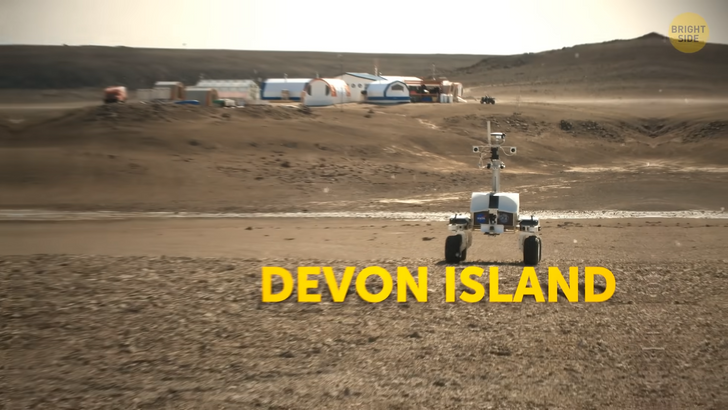
In 2001, a project started here on Devon Island, looking to discover how people might live and work on other planets, particularly on Mars. It’s called the Haughton Mars Project and offered NASA scientists some unique studying opportunities.
There are few options here in terms of logistics and transportation, and communicating with people living outside the island is also a bit more difficult. Specialists believe that if we can find solutions to live here, we might be able to do it on Mars too. Think of it as a home-based outer space boot camp!
The Pitcairn Islands can be found in the middle of the Pacific Ocean. If you’re a fan of adventures and remote places, this is the place to be. But you’ll need to buckle up for quite the ride since no plane has ever reached this place. The only way to reach the Pitcairn Islands is to take a 32-hours yacht ride. No wonder only 50 people are known to live here.
Its history is really interesting too: a group of people settled here in the 18th century after a failed marine mission. To this day, all the residents of the island are descending from that initial group. Life’s not easy here though. If they need to see a doctor, for example, they need to travel either to the island of Fiji or to New Zealand.
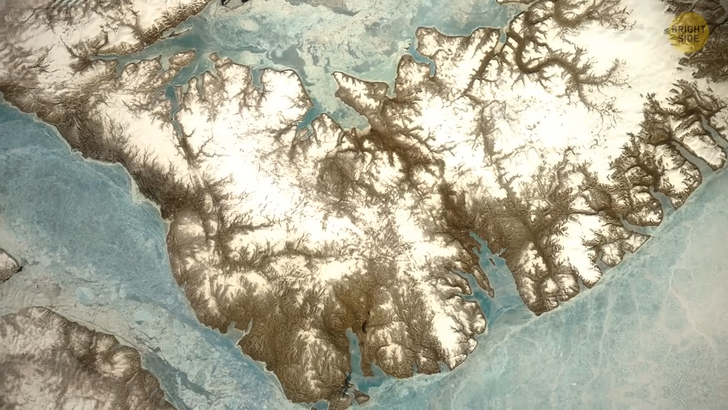
Now let’s head over to Mexico, where recent technology has allowed scientists to explore some fascinating cenotes, which were previously unknown. Cenotes are also called sinkholes, and allow us to see subterranean water bodies.
A team of archeologists, cave divers, underwater photographers, and biologists came together to explore and document the extensive network of sinkholes, located in the Yucatán Peninsula. One of the hot spots is located under the main pyramid at the Chichen Itzá archaeological site. In total, scientists are looking to explore about 6,000 cenotes stretched across this whole region.
The whole project is important not only because of the geological discoveries but also because of its connection to the Mayan people and their culture. These recent discoveries revealed that for the Mayans, these cenotes weren’t simple water sources. They dictated the way they built their constructions and had a huge impact on their spiritual lives too.
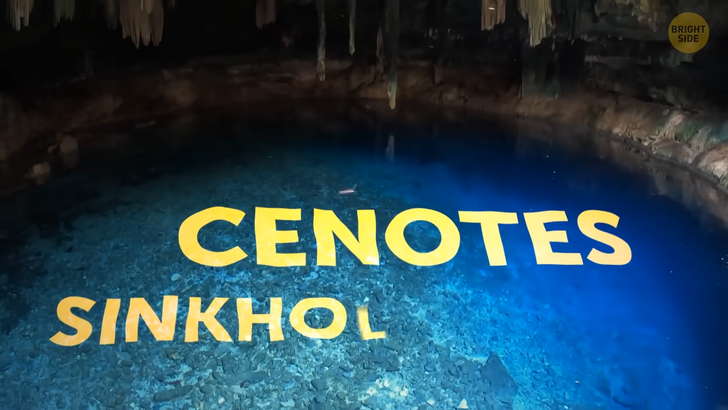
The tallest mountain in the world is Mount Everest, sure, but it’s been explored by scientists and tourists alike and doesn’t hold many secrets. The mysterious Gangkhar Puensum on the other hand is the tallest unclimbed mountain on our planet. The reason behind this unusual situation is not because of its remoteness or harsh conditions. Rather because it’s against local legislation to climb it! It’s located in the south Asian territory of Bhutan and the name of the mountain translates to the “White Peak of the Three Spiritual Brothers”.
Local tradition dictates that mountain peaks shouldn’t be available to humans, and need to be left to the higher spirits. Mountains in this region can only be climbed up to 3.7 miles, but Gangkhar Puensum tops 4.7 miles. For this reason, there’s no official record of any human reaching the peak. Almost all of the previous expeditions have been inexplicably stopped at the midpoint.
The next unusual spot should be on any travel enthusiast’s bucket list: the island of Madagascar! For starters, it’s estimated that about 90% of the species of plants and animals that are found here can’t be seen anywhere in the world. But there’s one small portion of the island that has baffled both tourists and scientists: the stone forest. It belongs to the Tsingy de Bemaraha National Park and features some unique limestone formations. They look like thousands of spiky towers that stretch hundreds of feet into the air.
The distance between these formations can be anywhere from a few inches to the length of a city street. As beautiful as it is, it’s really hard to get here: it’ll take you a few days to get there from the nearest city. Once you get to the park, it becomes really difficult to explore too. It can take a whole day to go across as little as half a mile. The word “tsingys” itself translates to “where one cannot walk barefoot.”
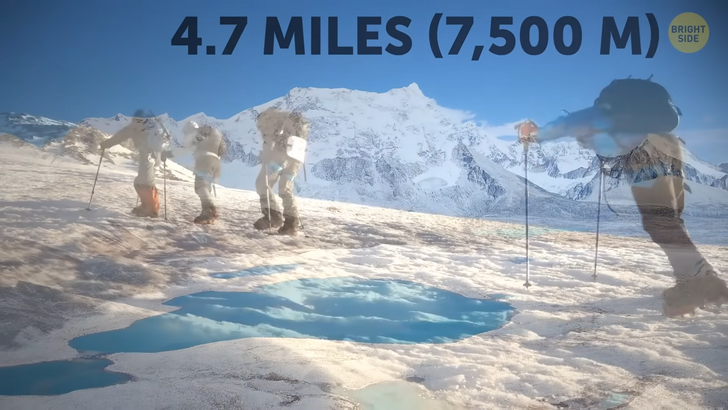
To visit the remotest village in the whole world you’ll need to prepare yourself for quite the journey. From the United States, for example, the easiest route involves a 15-hour flight to Cape Town, South Africa, followed by a six-day boat ride to reach Tristan da Cunha. Or you could take a month-long cruise through the South Atlantic Ocean, whatever works better. Planning in advance is a must since only nine boat visits are made to the island yearly.
It’s just 7 miles long and right in the middle of the South Atlantic Ocean, stretching a mere 37.8 square miles. There are slightly over 200 residents, and they all farm for a living. They do have internet service, but it’s really slow. The people living here speak a dialect of English that is used by the fewest number of people in the world.
The town of Coober Pedy in Australia is partially underground. It all began back in 1915 when opal deposits were found in the area. To this day the town is still the biggest opal mine in the world. People living here figured out that it would be more comfortable for them to stick to the underground, as temperatures above ground can reach 125 degrees F.
So the establishment now has underground stores and galleries. Coober Pedy is also home to the world’s first 4-star underground hotel! North Sentinel Island, located near India, is another pretty remote place. Not because of the time it takes to get there or the climate.
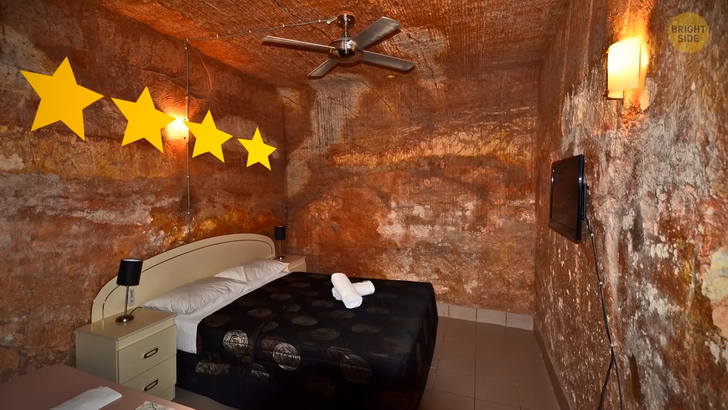
But because it’s home to the world’s most mysterious tribe. The population living here is estimated to be between 50 and 400 people and isn’t known to have any contact with the outer world. This is mostly because locals don’t really enjoy visitors and tend to scare them away, even harming tourists.
So, to protect them and their obvious wishes, the island is monitored by the local Indian authorities. It’s believed the tribe’s people don’t have any immunity from modern diseases, so being in contact with foreign people might actually be fatal for the locals.
On these French islands, there are no native inhabitants. The Kerguelen Islands are part of the Antarctic lands and are home to just scientists that visit, on rotation. At any given time of the year, there are no more than 100 people here, and they’re mostly engineers and researchers. There’s no plane to get you to these islands and few tourists are known to have visited them.
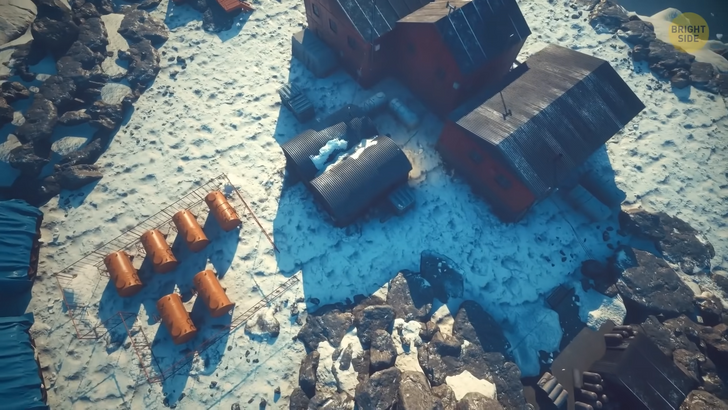
The island is covered in glaciers, and the soil here isn’t friendly to plants or animals. But if you’re curious about what this place looks like, you’ll need both the money and the time to complete the trip. You can only reach the island by ship, which reaches the shores of Kerguelen only four times a year.
It isn’t cheap to stay in these islands, and you definitely won’t find 5-star hotels here. The trip departs from Réunion, and it takes about 28 days to reach the first island. Half of the time will be spent at sea, so be prepared to cover over 5,600 miles of the Indian Ocean.











